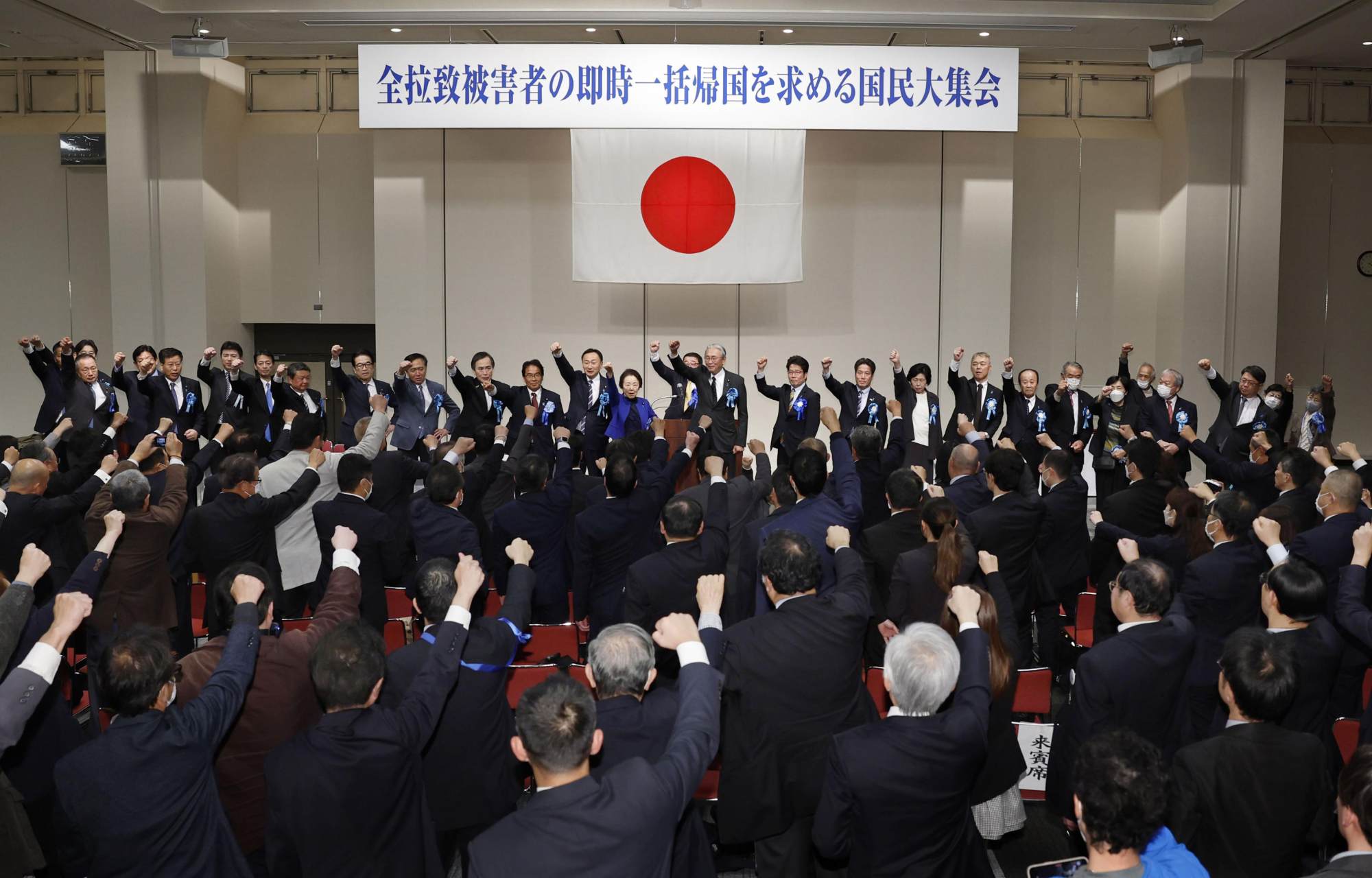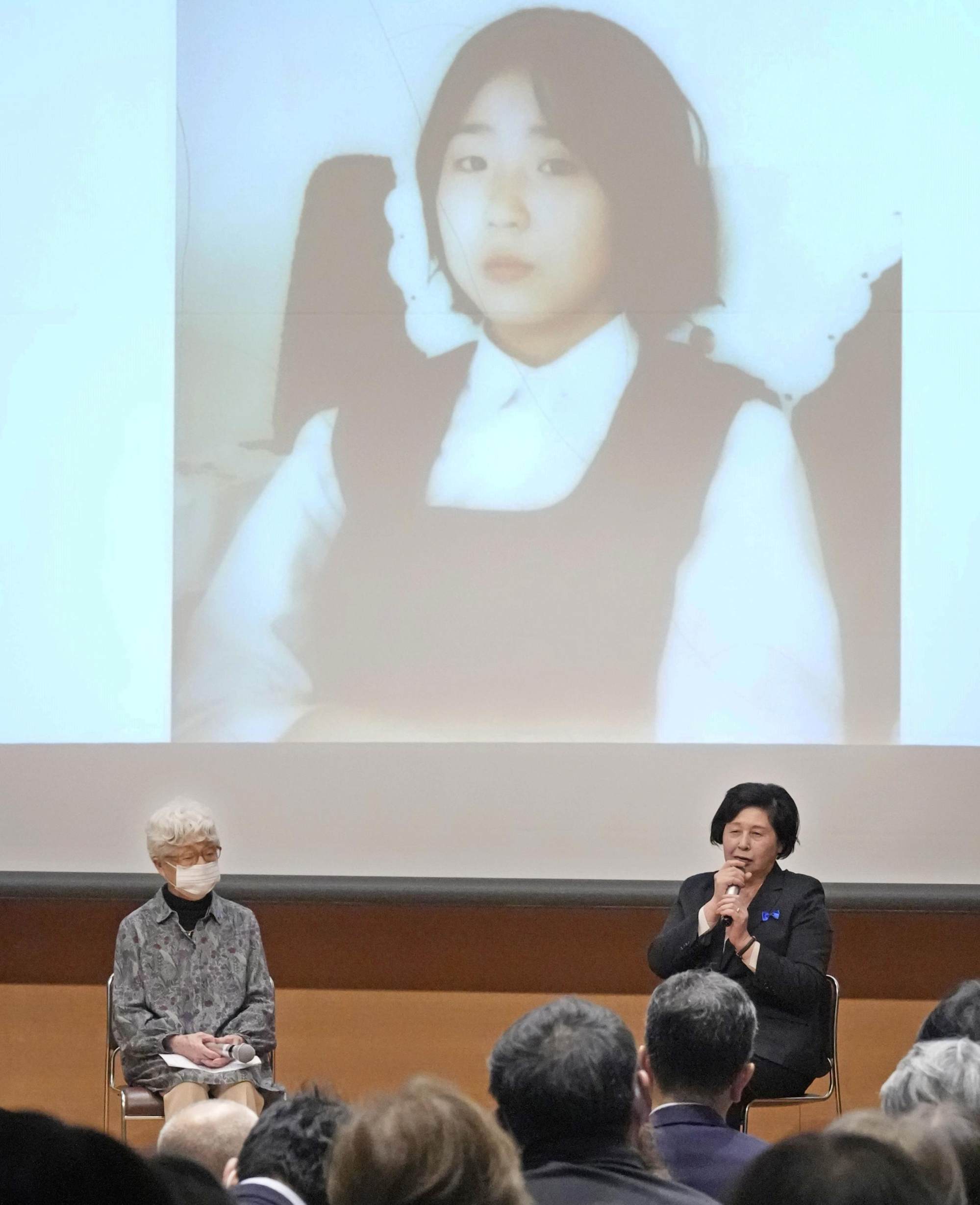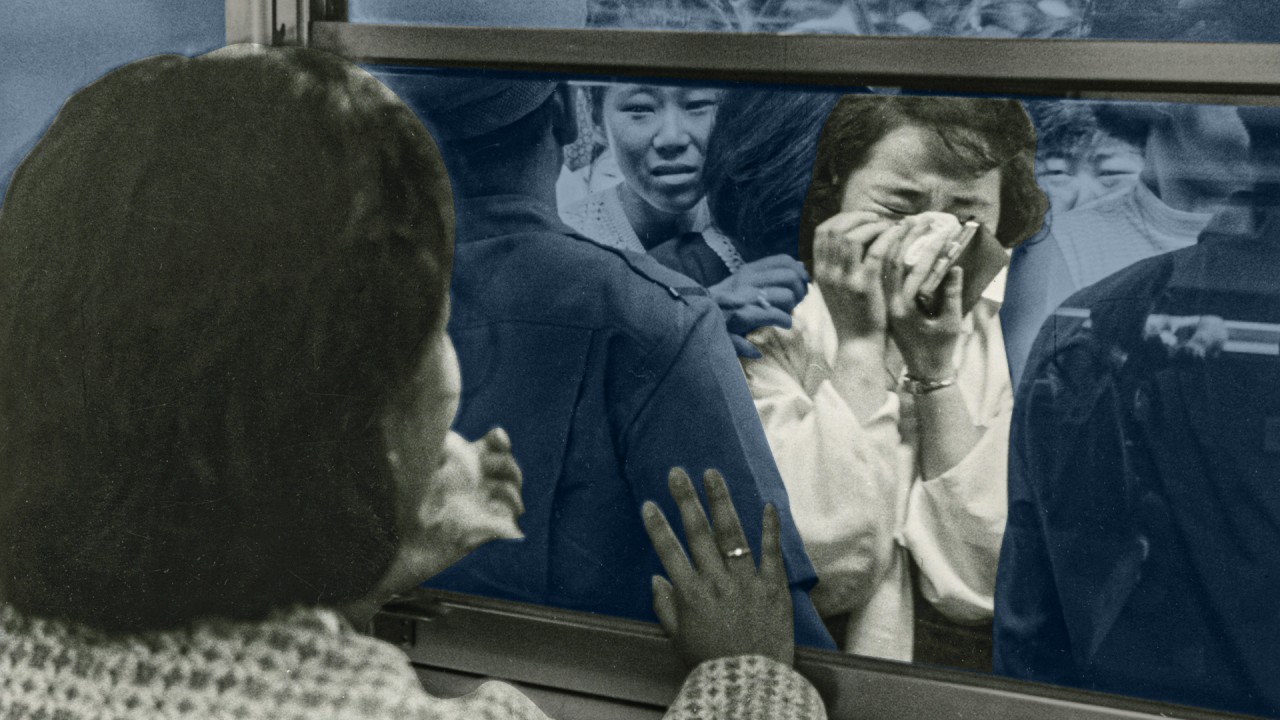
Why Japan’s bid for talks on North Korean abductions will be ‘political suicide’ for Kishida
- PM Fumio Kishida hopes to address North Korea’s recent missile launches and resolve the issue of Japanese nationals seized by Pyongyang in the 1970s and 1980s
- But Kim Jong-un will ‘simply refuse’ to engage, after his late father’s 2002 admission to the abductions proved a ‘disastrous miscalculation’, analysts say
Kishida made the remarks at a citizens’ gathering in Tokyo, calling for Japanese nationals abducted by North Korean agents in the 1970s and 1980s to be brought home.
“We are making approaches through various channels,” Kishida said. “It is extremely important that I myself take the initiative in building a relationship between the leaders.”

But Ryo Hinata-Yamaguchi, an international-relations assistant professor at the University of Tokyo, said the chances of a Kishida-Kim summit were low as Pyongyang “will simply refuse to talk about the abduction issue”.
From 1977 to 1983, Japanese citizens were reportedly abducted from Japan by Pyongyang’s agents, mainly to teach Japanese language and culture at North Korean spy schools.
For a long time Pyongyang denied the abductions, but in 2002, during a meeting between former Japanese prime minister Junichiro Koizumi and late North Korean leader Kim Jong-il, the latter admitted to the abduction of at least 13 Japanese citizens, issued an oral apology and freed five of the victims.
Why is anti-Korean racism in Japan on the rise again?
Ulv Hanssen, associate professor at Tokyo’s Soka University’s law faculty, said that given the “emotional nature” of the issue, it would almost be “political suicide” for Kishida if he met Kim without raising the abduction issue.
“We are dealing with real human beings, not abstract weapons systems,” he said, adding that the late North Korean leader admitted to the abductions in the hope of creating goodwill and trust in order to advance diplomatic normalisation talks.
The strategy however “completely backfired”, and North Korea’s “already bad reputation reached rock bottom and the Japanese began seeing North Korea as the pinnacle of evil”, Hanssen said.
“The lesson North Korea learned from this was that the abduction confession had been a disastrous miscalculation,” Hanssen said, and after that, Pyongyang “has shunned almost any dialogue about the abductions”.

The only exception was in 2014 when both countries met in Sweden and where Pyongyang – in a bid to reduce tensions – promised to renew investigations into the abductions.
Even if there were still Japanese abductees in North Korea, Hanssen said the leadership had “nothing to win from revealing any information about them”.
“A revelation of new abductees would just rile up anti-North Korean sentiments in Japan and make normalisation an even more impossible prospect,” he said, referring to Tokyo’s condition that normalisation would only occur after the matter was resolved.
Hanssen added that North Korea’s recent missile testing and launching of a satellite were expected to complicate matters.
Even though North Korea is prohibited by several Security Council resolutions from carrying out nuclear or ballistic missile activity, it has launched three Satellite Launch Vehicles this year and 29 ballistic missiles, including four intercontinental ones.
Seoul wary as North Korea seeks to arm Russia in exchange for military technology
What Russia’s purchase of North Korean arms could mean for world security
Apart from decades of economic assistance to North Korea, Chinese companies have reportedly helped North Korean workers find work abroad, while Chinese ships deliver sanctioned North Korean goods to Chinese ports.
These measures are aimed at helping cash-strapped Pyongyang evade a broad range of international sanctions designed to hamper its nuclear weapons programme, according to an Associated Press review of United Nations reports, court records and interviews with experts.
Yoichiro Sato, Asia-Pacific studies professor at Ritsumeikan Asia Pacific University in Japan, said Moscow’s support for Pyongyang had “watered down” the sanction regime against North Korea, referring to the myriad of international measures including an arms trade ban and the freezing of assets belonging to individuals involved in the country’s nuclear programme.
In recent months, relations between South Korea and Japan – long strained over historical and territorial issues – have thawed due to their growing concerns about China’s greater assertiveness in the region and greater strategic pivot towards the United States.


